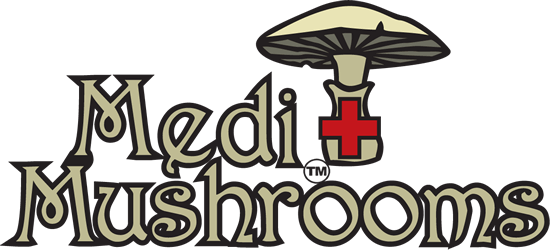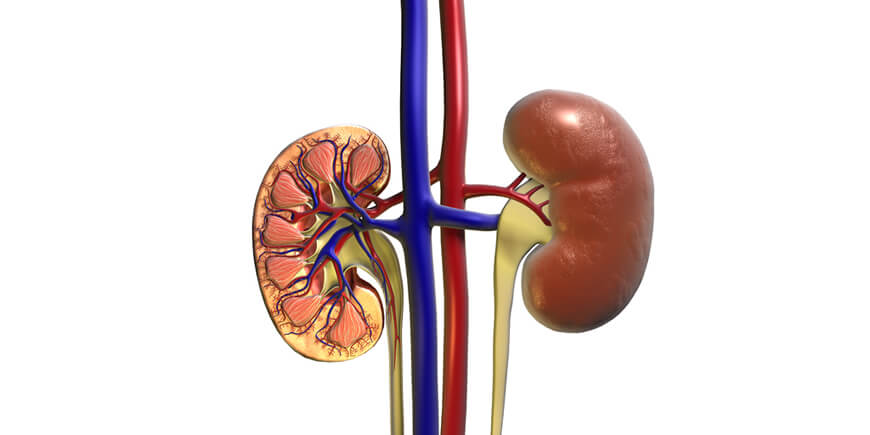*** IMPORTANT SHIPPING & DELIVERY NOTICE ***
Some international couriers continue to experience shipping delays.
We recommend you buy early and in bulk to avoid the impact of these delays.For 25+ years, we've been supporting a Healthy Body, Strong Spirit and Clear Mind!
Providing superior quality medicinal mushroom supplements
to customers in 74 countries around the world.Buy More & SAVE Big
- Tap for Navigation
- Dietary Supplements ▼
- » Dr Alla's Cordyceps
- » Dr Alla's Lion's Mane
- » Dr Alla's Maitake
- » Dr Alla's Reishi
- » Dr Alla's Shiitake
- » Testimonials
- Symptoms Chart
- Get Advice ▼
- » FAQ
- » Health Consultations
- Dr Alla's Insights ▼
- » Medical Conditions
- » Mushroom Properties
- » Research Info ►
- » » Medical Quotes
- » » Reference Works
- » » Mushrooms - Why Special?
- About ▼
- » Dr Alla's Story
- » Testimonials
- » Trade Enquiries
- » Contact
- Customer Info ▼
- » Access My Account
- » Track My Order
- Navigation
- Dietary Supplements ▼
- » Dr Alla's Cordyceps
- » Dr Alla's Lion's Mane
- » Dr Alla's Maitake
- » Dr Alla's Reishi
- » Dr Alla's Shiitake
- » Testimonials
- Symptoms Chart
- Get Advice ▼
- » FAQ
- » Health Consultations
- Dr Alla's Insights ▼
- » Medical Conditions
- » Mushroom Properties
- » Research Info ►
- » » Medical Quotes
- » » Reference Works
- » » Mushrooms - Why Special?
- About ▼
- » Dr Alla's Story
- » Testimonials
- » Trade Enquiries
- » Contact
- Customer Info ▼
- » Access My Account
- » Track My Order
On both the right and left sides of your spine there is one kidney. These are small bean-shaped organs and they vary in size from about 10 cm to 13 cm. Kidney is part of the urinary system.
What is the function of the kidneys?
Kidneys are, in fact, a complex filtration and purification system in the body. They continuously purify the blood by extracting waste out of the blood and then converting this waste inside the kidneys into urine. The urine is passed through the special tubes, called ureters, into the bladder and then excreted out of the body through the urethra.
This process of filtration and purification is vital and continuous, the urination takes place a few times a day.
What exactly do the kidneys do?
- Balance the body fluids
- Maintain the correct pH level (control acid-base balance)
- Maintain healthy salt level
- Balance the levels of electrolytes
- Produce special enzymes called renin which regulate blood pressure levels
- Produce chemical called erythropoietin which monitors the production of red blood cells
- Regulate the process of absorbing calcium
- Keep the healthy potassium levels
- Keep the balanced level of phosphorus
If any of these functions are out of balance, the health is jeopardised, and the medical professional’s attention is required to avoid some serious health problems that can lead to death.
What are the types of kidney diseases?
Kidney Stones - are formed as the result of crystallisation of minerals and other substances that are absorbed from the blood. The kidney stones vary in sizes and shapes. Most of them pass through during urination causing various degree of discomfort or even pain, but sometimes they are too large and medical attention is required in these cases.
Urinary tract infections or UTIs - in most cases the urinary infections start in the bladder and urethra. These can be treated quite easily but if left untreated, UTIs can cause very serious health problems, including kidney failure which may lead to the fatal outcome.
Glomerulonephritis - is caused by the swelling of tiny blood vessels, glomeruli, in the kidneys. These blood vessels are exactly that filtration mechanism that filter blood that passes through the kidneys. Glomerulonephritis can occur just after the birth of the baby, can be caused by an infection or an allergic reaction to some drugs/medications. There is no need for treatment, the issue usually settles on its own.
Polycystic kidney disease - this is characterised by the growth of many small cysts inside the kidney that are filled with fluids. These cysts cause a serious kidney dysfunction and requires medical attention as it can lead to kidney failure.
Chronic Kidney Disease - the kidneys are not functioning properly for a prolonged period of time, usually more than 3 months.
The following factors can lead to Chronic Kidney Disease:
- Too high blood pressure - It is very important to keep the blood pressure as close as possible to normal levels because the high blood pressure damages those tiny blood vessels, glomeruli, in the kidneys which in turn leads to kidney failure.
- Diabetes - High sugar levels cause severe damage to blood vessels, glomeruli, in the kidneys.
What are the symptoms of kidney disease?
- Frequent urination at night
- Burning sensation during urination
- Blood in the urine
- Fluid retention
- Dry and scaly skin
- Swollen ankles and feet
- Swelling / puffiness around the eyes
- Pericardium (liquid in the sac that covers the heart)
- Difficulty in breathing
- Pain in the back just below or behind the bottom of the ribs
- Muscle cramping
- Pressure and pain in the chest
- Loss of appetite
- Decreased sex drive
- High potassium levels
- High blood pressure
- Insufficient and disturbed sleep
- Anaemia
- Tiredness
- Poor Concentration
- Nausea
- Vomiting
What are the risk factors for kidney disease?
- High Blood Pressure
- Diabetes
- Urine Blockage – can be caused by: kidney stones, bladder cancer, prostate cancer, colon cancer, blood clots in the urinary tract, etc.
- Lupus - the immune system is attacking some parts of the body including the kidneys.
- Multiple Myeloma - the cancer cells produce abnormal proteins that affect the kidneys and cause kidney failure.
- Anorexia Nervosa – the lack of salt and water in the body leads to severe damage and kidney failure.
- Blood Clots - caused by the blood disorder called thrombotic thrombocytopenic purpura and can lead to severe kidney damage.
- Polycystic Kidney Disease - the growth of many small cists filled with fluid in the kidney. This is a genetic condition and can lead to severe kidney damage and kidney failure if not treated.
- Scleroderma – very rare disease that causes the hardening of the blood vessels in the kidney and the connective tissues which leads to the proteins to leak into the urine. This condition increases blood pressure levels and leads to kidney failure.
- Hemolytic Uremic Syndrome - the red blood cells are accumulated in the kidney's filtering system that leads to kidney failure. It is characterised by continuous and prolonged diarrhoea that lasts for 4 to 5 days, by extreme tiredness and exhaustion and inability to urinate. Medical assistance is required.
- ANCA Vasculitis (Anti-Neutrophilic Cytoplasmic Autoantibodies) – the small blood vessels in the kidneys and other organs are attacked by the body's antibodies which fight germs, bacteria, viruses. As the result, the blood and proteins mix up with urine and this leads to kidney failure. The ANCA Vasculitis is characterised by symptoms like high fever, brown or dark tea-coloured urine, joint and muscle pain, general tiredness and body aches.
- Drugs and Toxins - some medications, toxins, pesticides and also the "street" drugs, for example heroin, can cause kidney damage and kidney failure.
What can be done to keep the kidneys healthy?
- Healthy lifestyle
- Balanced diet
- Avoid stress
- Avoid fatty food
- Reduce the intake of salt
- Stay physically active
- Stop smoking
- Avoid excessive drinking
- Maintain healthy weight
- Maintain blood sugar levels
Recommended Medicinal Mushrooms:
Numerous studies of the effects of Reishi, Lion’s Mane and especially Cordyceps have shown huge improvements in the function of kidneys, such as:
- water re-absorption,
- ability to regulate the blood pressure in the blood vessels,
- reduce the inflammation,
- better production of hormones,
- reduce production of urinary protein,
- improved production of amino acids and glucose,
- ability to maintain the balanced acid-base levelsand, in general, boost the immune system to fight the disease.
Please let me know if you need more information about any of our MediMushrooms products or if you want to discuss your health issues.
I am here to help,
Dr Alla.
CONTACT INFO
021 227 9922 (NZ)
+64 21 227 9922sales@medimushrooms.co.nz
MS Teams: alla.kiroshka
We ship globally to 74 countries and locally to all regions of New Zealand. Local shipping destinations include Auckland, Bay of Plenty, Gisborne, Hawke's Bay, Manawatu-Whanganui, Northland, Taranaki, Waikato, and Wellington on the North Island. As well as Canterbury, Marlborough, Nelson, Otago, Southland, Tasman, and West Coast on the South Island.

Top NZ cities and towns we ship to include Alexandra, Arrowtown, Ashburton, Auckland City, Blenheim, Bluff, Cambridge, Christchurch, Cromwell, Dannevirke, Dargaville, Dunedin, Eltham, Feilding, Gisborne, Gore, Greymouth, Hamilton, Hastings, Havelock North, Hawera, Hibiscus Coast, Hokitika, Huntly, Invercargill, Kaikoura, Kaitaia, Kāpiti Coast, Katikati, Kawerau, Kerikeri, Levin, Lower Hutt, Manukau City, Marton, Masterton, Matamata, Morrinsville, Motueka, Napier, Nelson City, New Plymouth, Ngaruawahia, North Shore, Oamaru, Otaki, Palmerston North, Paraparaumu, Picton, Porirua, Queenstown, Rolleston, Rotorua, Stratford, Taupo, Tauranga, Te Awamutu, Te Puke, Thames, Timaru, Tokoroa, Upper Hutt, Waihi, Wanaka, Warkworth, Wellington City, Wellsford, Westport, Whakatane, Whanganui, Whangarei, Whitianga.
Copyright © 2004 - 2026 MediMushrooms International Ltd
DISCLAIMER: The information on this website has been researched, reviewed and presented with all due care.
Nevertheless, the content is provided for general education and information only and should not be relied upon in making,
or refraining from making, any decision. It is NOT intended to replace medical advice from a healthcare professional.
All users are urged to seek advice from a qualified healthcare professional for diagnosis, treatment and answers to their medical questions.
Use products as directed. If symptoms persist, please see your healthcare professional.Specific results expressed herein are not typical. Individual results will vary.


